A reimagination of University pride: interview with @vintagepaceuniversity
April 14, 2021
When it comes to school pride, it’s no secret that smaller schools such as the University may be lacking. With the school’s clear appeal being “the city is your campus,” the school itself is often overlooked.
University junior James Straub noticed the clear lack of “Pace pride,” so he took a step back and asked the question, “Have things always been like this?”
The answer is no: the University has a deep history full of college pride. The problem is, many current students do not know about it. Straub wanted to change that, so he created the Instagram account @vintagepaceuniversity.
The page includes images of students on campus throughout the school’s history – from the Pace College days all the way up until it became Pace University in the early 1970s.
The Pace Press spoke with Straub to find out more about his motivation to create this page and how he feels about the concept of Pace pride.
Q: What made you want to start this project?
A: I’ve always generally been interested in the history and heritage of certain organizations and whatnot, but I think the desire to make the page really started when I was looking one day for old Pace merchandise.
I was looking for t-shirts and other memorabilia, and I was barely finding anything. I did find three small pictures: one of 41 Park Row under construction, one of students in the early 1910s in a classroom and a few photos of the two Pace brothers. Aside from that, there was basically no information about Pace from “back in the day.”
For example, I didn’t even know it was called Pace College before it was Pace University – from about 1951 to 1972. That’s the period of time I want to focus on the most with the page, mainly because my own personal interest lies there.
I also want to show history that is different enough from how things are today. I find it very nostalgic. For example, if you imagined Harvard University in its heyday, you’d think of the sweaters with the red H’s, people with little flags going to a football game or sitting on the green field on the campus. There’s a very specific image that comes to mind when you think of Harvard nostalgia, or what it “means to go to Harvard.”
So many colleges have that, even NYU, which prides itself on being such a contemporary school. You can look back and see things like the campus’s historic buildings. At first, I thought that it was disappointing that Pace doesn’t exactly have this rich history. Then I learned that it DOES, the problem is that nobody’s talking about it.
So many people have this lack of Pace pride, and I feel like so much of that has to do with the fact that the Pace pride that you have to have, you have to come up with on your own. I have no affiliation or any official backing by the University, because I want it to focus on the students.
So much of the information out there about the University is mandated information, and it’s not even about the students. It’s about who was in charge at a certain time, when they decided to upgrade a certain thing, etc. It sounds like a college pamphlet for parents. No University student uses information like that to express why they love the school. They’ll use the fact that in 1955, University students were going to baseball games in Queens even though we don’t even have a campus, or that in the 60s, our biggest sports were bowling and fencing, which is a true fact!
To wrap it up, this is something I saw nobody else doing, and it’s something I wish I could’ve seen. If I had seen something like this my senior year of high school, I would’ve been so much more enthusiastic about attending the University, rather than just thinking that my experience will be what I make it, which is what it has been. I know I’m not going to change the tide completely, but I’d love it if I can at least get other people interested.
Q: Where are you finding all of these old pictures, and all of the content and information you post?
A: Most of my pictures right now come from the yearbooks from the ’50s and ’60s, and I’ve even gone into ‘73 and ‘74, even though I’ve wanted to focus more on “Pace College,” like I said. However, the first few years that it was officially “Pace University” were interesting to me.
I’ve gone through the yearbooks, found pictures and edited them to be a higher quality to post. Some of my information has been very hard to find. I’ve done a ton of research, and not a lot has turned up online, but I’ve met with the Pace archivist twice. However, she’s said that a lot of the information isn’t released because people aren’t interested, which just proves my entire point from before!
The good news is, you can look out in the future for more Pace Press content, such as old issues. Through the archivist, I have gotten a connection to view the old Pace Press issues! Anyone can access the yearbooks, and right now I’m just curating my favorite content from the yearbooks. I’ve also done my own fair share of collecting Pace memorabilia, for example, I have a Pace pennant from about 1962, and it says “Pace College” on it. It’s really cool; I’ve found nothing else like it. My research has been a mix of all three of those things; reaching out to the university archives, searching through the yearbooks and personal collecting and exploring.
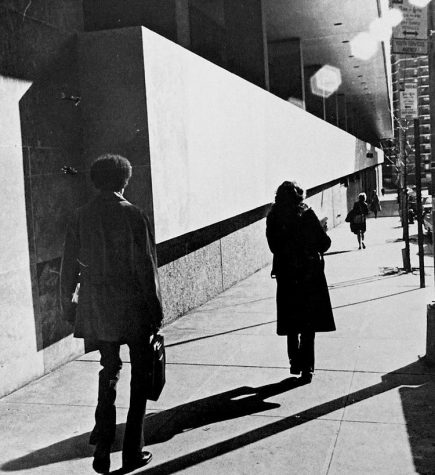
Credit: @vintagepaceuniversity on Instagram
Q: Are you just focusing on covering the history of the New York City campus, or are you exploring Pleasantville as well?
A: I’m just doing New York City, mainly because of the fact that I myself have no personal association with Pleasantville, so I’m a little less motivated to look into it. I have seen yearbooks and such from Pleasantville, and I have heard some information about it through the archivist. Although recently I have wondered, since I haven’t had much of a lead with finding stuff on the NYC campus, Pleasantville may have more of an active archive. I may do small features on Pleasantville in the future, but as of now I’m mostly just focusing on New York. However, if anyone in Pleasantville did want to start their own vintage page, I’d definitely welcome it!
Q: I know your goal with this page is to create a new sense of Pace pride, have you had a good reaction so far in that regard?
A: I have! I’ve had a couple of people reach out telling me what I’m doing is really cool. However, simply having people follow the account, to me, is a good reaction. It’s been hard to get it out there, mostly because I’m not fully promoting it, but at the end of the day I definitely want people to be interested in this.
I want this message and this page to not die out when I graduate or stop having the time to do it. Most of my responses so far have actually been from more University-affiliated people, which I find interesting because it’s almost like I’m stepping in where I feel that they have been lacking in a way. The library reached out to me and asked me where I was getting my content, and they were the ones who helped connect me to the archivist. I think the thing that makes me feel the most accomplished is the fact that the University Instagram account followed me, which feels a bit like a seal of endorsement. The page may not be totally kicked off right now, but I hope that someday many more people can see it.
Q: Would you continue this project once we’re back on campus?
A: Definitely! Actually, once I get enough content and enough of a following, one of my goals for this is to be able to put out some sort of physical zine, just to have a physical copy of all of this information or to have it there for people who don’t have Instagram. I feel like it would tie everything together really well. I can include a lot more miscellaneous information that might not fit as well into an Instagram post, like random posters and papers and logos and such. I do like this being my own thing because a lot of it is my voice and my interest. With that being said, if there are people who could or want to contribute, I wouldn’t turn it away.
Q: What do you think are ways to show or gain a sense of Pace pride?
A: I think a big part of it is finding your spot within the students. I think a lot of people’s opinions about Pace lean towards some of the academics, or the food, and they judge their college as a whole based on that. In reality, when people talk about their college days, people don’t bring up that one science teacher they didn’t like or that they didn’t like living in the dorms. They talk about the memories they made and the people they were around and the things they did for fun. It has to do a lot with your sense of self in relation to the school as well. This was a problem I had for a while; people would ask what college I go to and I’d say I go to Pace, and they’d say they’d never heard of it and ask where it is. It can be disheartening, but if you say every time that you just go to this nowhere school, then it won’t be as special. It’s college, and it’s in the middle of New York City; that alone should speak for itself!
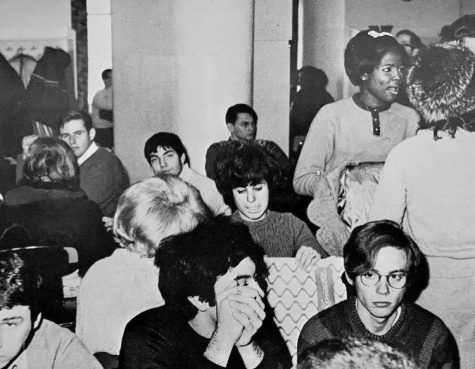
Credit: @vintagepaceuniversity on Instagram
Q: Have you reached out to alumni for any of your material?
A: Not yet, but I want to do that soon to get some more never-before-seen photos! I want to make a more concrete sort of elevator pitch of this page, and then send it out to sources that can help me get more connections, which leads to more content.
Q: Are there any Pace-centered traditions that were happening that you’ve been able to find during this time period of the ‘50s, ‘60s, and ‘70s that are still going on today?
A: Definitely, there are little things here and there. From ‘69 to ‘70, there were a lot of anti-war protests happening around City Hall, such as the Hard Hat Riots. Those riots were actually right outside the new University building, and apparently, a lot of the random people protesting actually broke in. That’s one thing; the diversity of ideas and people, and the sense of student willpower that seems to have remained. A lot of the same clubs existed back then, The Pace Press for example, as well as the Pace University Black Students organization which I would assume was the precursor for today’s Black Student Union.
Another interesting thing: the University had a lot of guest artists come to perform. They had The Belmonts come one year, and Odetta another year. A lot of people came that we look back on now and realize how big of an artist they were. You don’t necessarily think about that now, but last year we had Megan Thee Stallion come to the University, and look at her now. The similarities between these traditions or occurrences are something I want to focus on more, but something I’m looking at more right now and finding really interesting is the peculiarities of the school’s history. Not only does the school have a history, but it has such a weird and unique history, with things like sports and student life, as well as the fact that the University doesn’t really have a campus. For example, in 1969, we still only had 41 Park Row, which as we know is not very big. You can see how many offices it has now, but back then it had to be offices, a cafeteria, classrooms and so on.
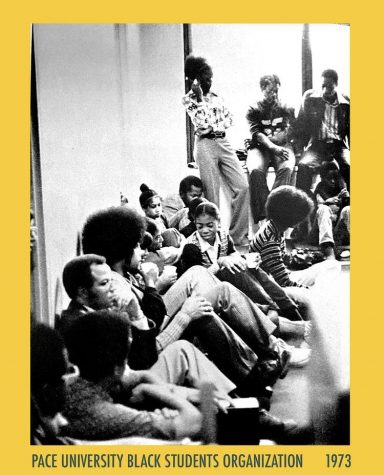
Q: Finally, what has been the most interesting thing you’ve learned so far in doing this project?
A: There was this really fascinating story I heard from the archivist about the University baseball team, from back in the early ‘60s. Because we obviously had no baseball field, the baseball coach would actually give the students fares for the Roosevelt Island Ferry, and they would meet there to practice. The only thing was, the ferry would only run every hour, so the students would have to hustle all the way down the Seaport and all get onto the ferry at once! Today, I couldn’t really imagine that, having to take the ferry with money the coach gave you to go practice. That’s something specific, but I think in general that navigation of having a small, virtually nonexistent campus while still maintaining a typical college culture is interesting.
We still had all of those typical “college” aspects; we had sororities and fraternities, we had a ton of sports and dances, and we had no campus to do any of it on, but we did it anyway, which I think is so neat. I do hope another thing that can come from this project is having people see all of these things we were once able to do, and maybe we could all be motivated to try and have them happen again, whether they’re student sanctioned or done through student body administration.
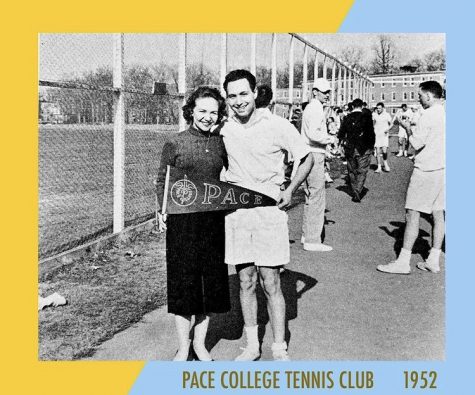
Throughout the course of the ongoing COVID-19 pandemic and virtual learning, it has certainly been difficult for students to feel connected to one another and the campus, but accounts and online spaces like this allow for a sense of community. Straub, who launched this project, ignited many students’ interest in the University’s history through photos and stories that many have never seen before. As students get through the last month of school, the Instagram page is a great way to feel connected to school. Make sure to follow and check out the account: @vintagepaceuniversity on Instagram!

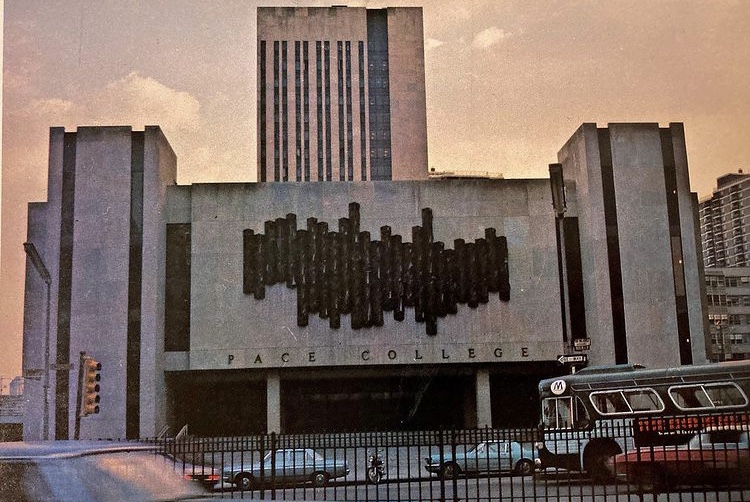

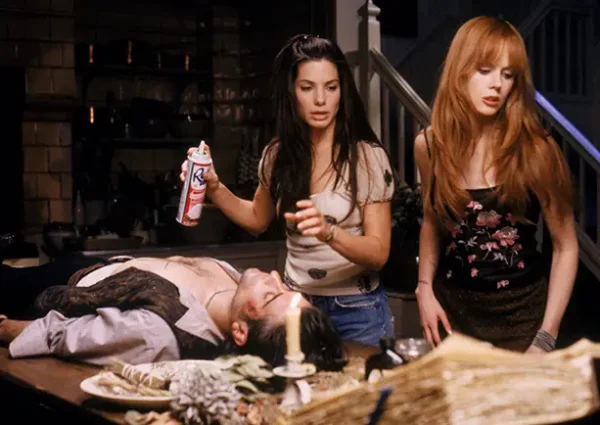


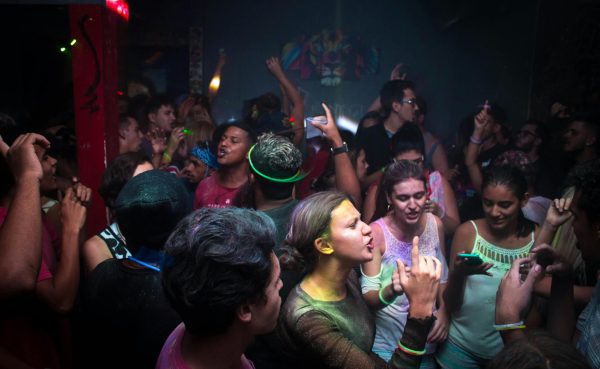

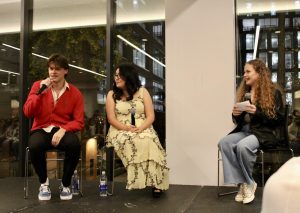


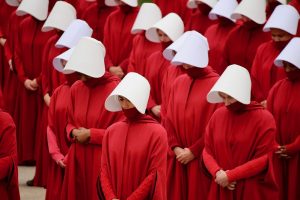
Murray • Sep 20, 2025 at 6:42 am
Live Pace!! Murray Birnbaum ,72